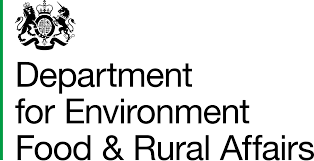HISTORIC PRESS RELEASE : Lambert Review of Business-University Collaboration [July 2003]
The press release issued by HM Treasury on 14 July 2003.
The links between universities and industry are increasing, especially in some research driven sectors, but there is room for improvement, according to Richard Lambert, who has today published a summary of the consultation responses and the issues raised in his review of business-university collaboration.
Richard Lambert said, “I have been impressed by the efforts that the universities have madeover the last 10 years to disseminate as well as to create knowledge. In some respects the business side is less impressive – apart from the pharmaceutical and aerospace sectors, there are relatively few research intensive businesses located in the UK. This translates into weak demand for the knowledge created in universities. The question is what can be done to encourage more businesses to collaborate with universities.”
A number of positive messages emerged from the consultation. It is clear that the amount of collaboration is increasing and that government funding for knowledge transfer activity in universities – so called “third stream funding” – has generated a marked culture change in universities and has built up their capacity to transfer knowledge. However there are a number of areas where further progress could be made, including:
- Stronger engagement from business – particularly small and medium sized businesses, which often do not collaborate with universities but who could benefit significantly from collaboration. A number of universities commented on the difficulties that they face in engaging with SMEs.
- Greater clarity over intellectual property – many respondents commented that negotiations over intellectual property and overhead costs could be a major sticking point. There appears to be a lack of clarity about intellectual property ownership in the UK, but equally a lack of consensus about what to do about it.
- Improved skills and experience in some technology transfer offices – UK universities are generally much less experienced at technology transfer than their US counterparts. Many UK universities have set up technology transfer offices but their performance is mixed – some are first rate while others are less impressive. There is also a sense that there has been an over-emphasis on spinning out new companies in the UK rather than licensing to existing ones.
- Better financial incentives for collaboration – many respondents commented that the Research Assessment Exercise is a significant barrier to collaboration, that academics are not sufficiently incentivised and rewarded for collaboration with industry and that the current funding streams do not promote enough multi-disciplinary research. Universities have asked for an increase in and greater certainty about future third stream funding levels and a move away from the competitive bidding process.
- Improved university management and governance – a number of businesses have reported difficulties in dealing with some universities and expressed a desire for university governance structures to be modernised.
- A better dialogue between businesses and the universities about the UK’s future skill needs – a number of respondents commented on the lack of an effective mechanism for business to influence the courses and teaching on offer at universities.
- A greater role for the RDAs in brokering relationships between business and universities – universities have an increasingly important role to play in their regional and national economies and in providing graduates with the skills that the economy needs. RDAs have a key part to play in linking them with their local businesses.
Richard Lambert said, “I think that the big question is whether there is scope to manage universities in a different way – for the Government to specify some measures of success, which if met by the universities would mean that they could be given greater freedoms to behave in a more entrepreneurial way.”
The review will be examining these issues in more detail over the next few months and will submit its final report, with case studies and recommendations, to the Government in October 2003.



